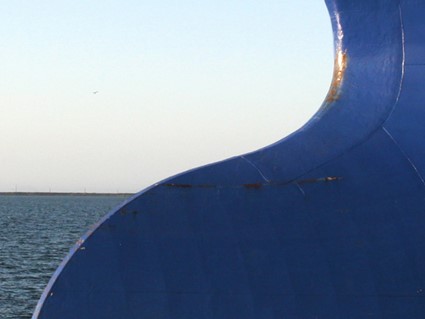Members may be aware that, due to the upsurge in piracy activity in the Gulf of Aden/Indian Ocean region, there has been widespread discussion in the media as to whether vessels should carry armed security personnel, which would of course include the carriage of arms and ammunition.
News Alerts
We issue News and other Alerts to keep members posted about developments at the Club and other industry news. Please see our latest Alerts below.
Those who wish to receive an Email Alert as soon as a new report is posted can register for this service by subscribing here
18 April 2011
30 March 2011
For a Summary of Developments please click here.
30 March 2011
Members will be aware of the ongoing troubles in Libya and the various sanctions against Libya originally implemented by the UN, EU and USA (see the Club’s News Alert of 8 March 2011 for further details). Since then, the UN have passed a further resolution (UNSCR 1973 (2011)) implementing, amongst other things, a no fly zone and enforcement of an arms embargo (for a full copy of UNSCR 1973 (2011) click here).
15 March 2011
Members will be aware of the devastating Tsunami that hit Japan in recent days.In response to this the P&I Correspondent, ISS P&I, has highlighted the Japan Coastguard’s website, which provides the latest navigational warnings (click here). Members may also wish to review the International Atomic Energy Authority’s daily briefings for up to date information as to the position regarding nuclear fallout.
8 March 2011
In response to the current unrest in Libya, the United Nations has implemented United Nations Security Council Resolution (UNSCR 1970 (2011)). This introduced financial sanctions against persons listed in Annex II to the Resolution (all being members of the Qadhafi family), or against persons designated by the competent United Nations Sanctions Committee as involved in or complicit in ordering, controlling, or otherwise directing, the commission of serious human rights abuses in Libya.
28 February 2011
Members may be aware that the Asian Gypsy Moth, which is to be found predominantly in eastern Russia, northern China and some parts of northern Japan, is a serious pest of coniferous and deciduous trees. Port areas in infested countries are sometimes subject to high population levels and the females often lay large egg masses on ships which can survive long sea passages, even in bad weather. The Asian Gypsy Moth is not found in North America and both the U.S.
16 February 2011
Members are advised that new EU Sanctions against Côte d’Ivoire entered into force on 15 January 2011. The sanctions, which are against various named entities/persons in or from Côte d’Ivoire, are embodied in Council Regulation (EU) No. 25/2011 (which amends Regulation (EC) No. 560/2005) (for the full new Regulation click here).
23 November 2010
Industry reports on the recent total loss of a bulk carrier off Taiwan have highlighted that the ship was laden with nickel ore from Indonesia. The sinking has resulted in a significant loss of life but the surviving seafarers are reported to have described how the ship lost stability and capsized before sinking.
1 July 2010
The industry developed Best Management Practice (BMP) guidelines for reducing the risk of capture by Somalian pirates has recently been updated and the new guidelines (Edition 3) as attached. These guidelines are clearer than the previous version in a number of respects, but the main difference includes acknowledgement of their applicability to the Indian Ocean. They also offer some guidance to crew in circumstances where pirates have achieved strategic control of a ship.
18 May 2010
The Correspondent in Durban, P&I Associates (Pty) Ltd, has advised The London P&I Club of continuing strike action at all commercial ports in South Africa. The strike involves a dispute between Transnet, the operator of all South African ports (the government being the majority shareholder), and Unions over wage increases. The largest impact is at the Port of Durban which is currently at a virtual standstill.

